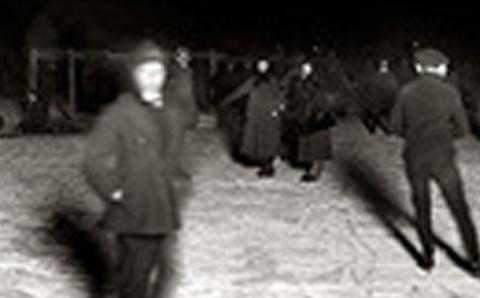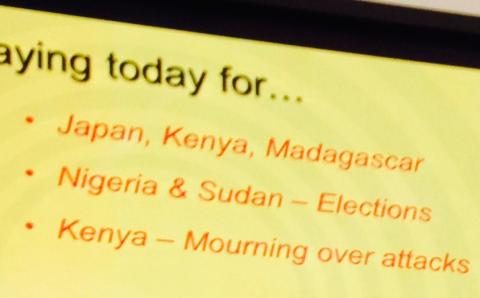The Christian Reformed Church’s fledging Faith Formation Ministries (FFM) convened a two-day consultation in April in Chicago with 25 key youth ministry leaders from around the denomination that resulted in all participants signing what they are calling the “Chicago Covenant.” The youth ministry leaders are committed to helping the denomination cultivate a shared vocabulary and theology for youth ministry and to continue working on a denominational youth strategy. The covenant also calls on denominational leaders and congregations to develop support structures that will help both paid and volunteer youth ministry leaders flourish. It calls on leaders at both local and classical levels to promote stronger youth ministry within the context of intergenerational faith formation.
Syd Hielema is the team leader of FFM. He said the ideas in the Chicago Covenant are not new. “What is new is a vocabulary and theology of discipleship and youth ministry that is moving from the fringe to the mainstream.”
Hielema said what is also new is the corporate character of the effort to build better support structures for youth ministry. “During the past generation the denomination has become more and more congregationalist. As part of this trajectory, every congregation has been developing its own ways of doing youth ministry,” he said. As a result, there is a tremendous variety of job titles among people in youth ministry, and many youth ministry leaders are functioning as “lone rangers.”
Hielema said that those involved in youth ministry have largely operated on the margins, outside of church structures. The Chicago group articulated some of the dilemmas facing the denomination with respect to youth ministry even as churches struggle to hang on to their youth and young adults. An Appendix to the covenant notes that “youth ministry matters are easily shut out of significant decision-making processes at the congregational, classical, and synodical levels.” It noted that too many volunteer youth leaders are stretched thin, and paid youth leaders have sometimes experienced employment abuses. Paid youth workers struggle to find their place and position within a church order that assumes that churches are led by ordained clergy. Additionally, youth ministry in the CRC has historically been seconded to Dynamic Youth Ministries (Cadets, GEMS, and Youth Unlimited), even though that organization is not accountable under the umbrella of the Christian Reformed Church.
Hielema noted that for the first time in the history of the CRC, there is denominational staff dedicated to supporting youth ministry at the congregational level. He also noted that while the churches are looking for leadership for youth ministry, “the church’s systems and defaults want to keep this kind of leadership safely parked at the margins.”
The event in Chicago was organized by staff from FFM and Jeff Kruithof, director of Youth Unlimited. Hielema said that the meeting came at a “kairos” moment in the life of the CRC: a time when FFM is being launched, Canadian CRCs have launched a youth ministry pilot project, and Youth Unlimited is seeking greater collaborations.
Hielema said the challenge to denominational leaders and churches contained in the covenant is not a power grab. “It's a way of saying, ‘We’re all in this together.’ [The Chicago consultation] is a first attempt to make this shift into more of a coherent movement with a vocabulary, a theology, and support community, and a commitment to work toward infrastructures for long-term sustainability.”
About the Author
Gayla Postma retired as news editor for The Banner in 2020.








